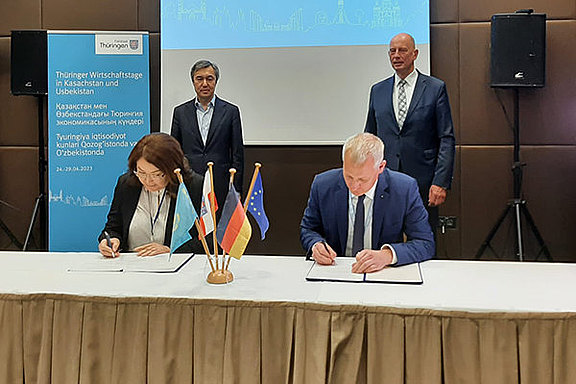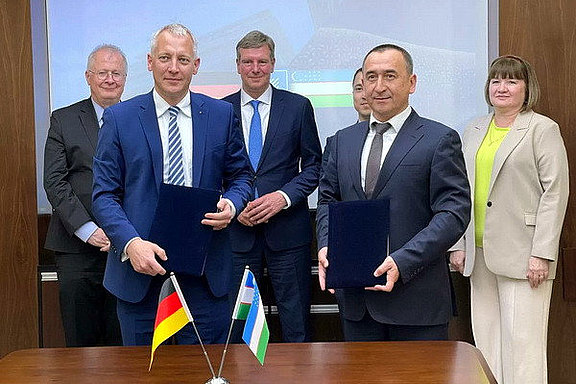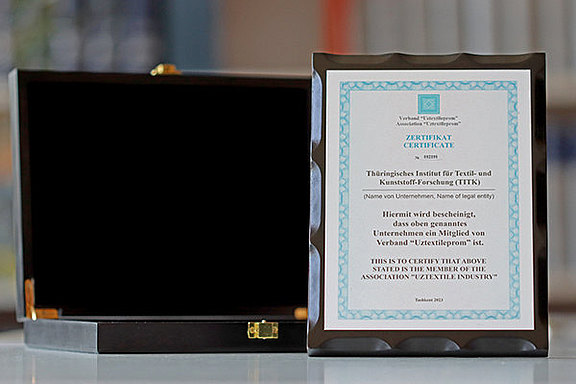After a market exploration trip to Kazakhstan and Uzbekistan in the previous year, TITK Director Benjamin Redlingshöfer took part in another trip to Central Asia at the end of April 2023 - this time as a member of an almost 50-strong Thuringian business and university delegation led by Economics Minister Wolfgang Tiefensee and Science State Secretary Carsten Feller. The TITK is now a partner of the two leading associations of the textile industry in Kazakhstan and Uzbekistan.
Stops on the trip were Kazakhstan's capital Astana as well as Almaty and Uzbekistan's capital Tashkent and Samarkand. "The contacts from last year were intensified in many discussions," reports Benjamin Redlingshöfer, who was strongly impressed by the growth dynamics of these markets. "And the same by the motivation of the young people in both countries."
For TITK, the most important results of the trip are two cooperation agreements with the Kazakhstan Light Industry Association and with the Uzbek textile association Uztextileprom. Both agreements focus on three main topics, Redlingshöfer said. "Firstly, technology transfer and our support in establishing lyocell technology. Secondly, joint research projects in the fields of synthetic and natural polymers, including their processing methods. And thirdly, the use of further innovative products from Rudolstadt - specifically the patented functional fibers of the Cell-Solution® product family and our analytical services."
In Kazakhstan and especially in Uzbekistan, large parts of the textile industry rely on cotton as a raw material, which is grown locally in large quantities. The entire textile value chain is geared to this, says Redlingshöfer. But the pleasant wearing properties of cotton come at a very high price, he adds: enormous land requirements, extreme artificial irrigation needs, and use of herbicides and pesticides. "So much so that the widely known problem of water scarcity in the region is becoming more pronounced." A dramatic example is the drying up of the Aral Sea, whose tributaries have been tapped for cotton production. While the lake was once the size of Bavaria, today only one-tenth of its surface is covered with water.
"Therefore, the challenge, but also a great opportunity, is to build up alternative technologies that can complement and substitute cotton in the medium term," Redlingshöfer emphasizes. Interest in the particularly sustainable Lyocell process is very high, he says. "By using old textiles or by growing hemp, cellulose fibers can be artificially produced with it - with a far better eco-balance than with cotton or viscose fibers," the TITK director said in an interview with Uzbek television. In parallel, the Cell Solution® functional fibers - such as SKIN CARE (with vitamin E) or CLIMA (for temperature regulation) could be added to cotton and thus help textiles achieve a real unique selling point.
Last but not least, the services of the TITK subsidiary OMPG as a testing laboratory for textiles and plastics should also come into play. For example, to analyze the skin compatibility of clothing with the know-how from Rudolstadt.


